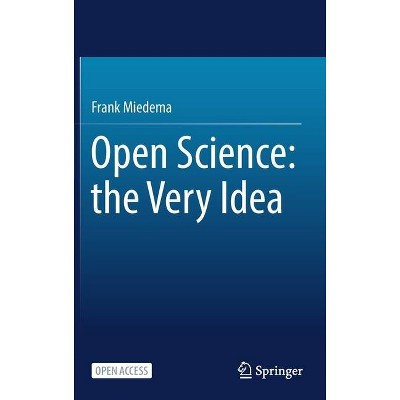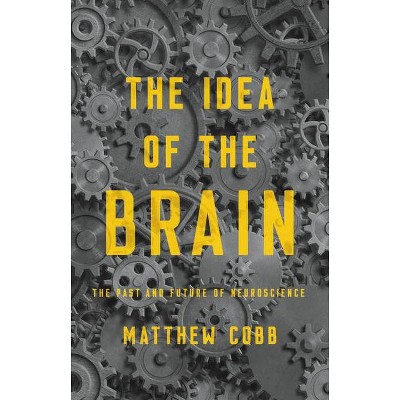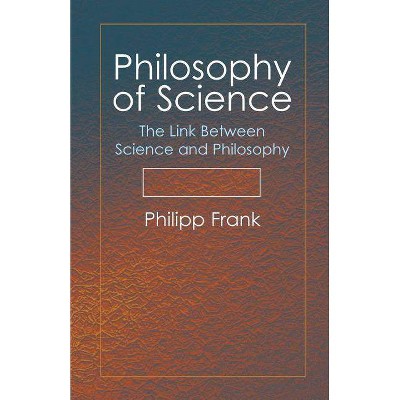Open Science: The Very Idea - by Frank Miedema (Hardcover)

Similar Products
Products of same category from the store
AllProduct info
<p/><br></br><p><b> Book Synopsis </b></p></br></br><p>This open access book provides a broad context for the understanding of current problems of science and of the different movements aiming to improve the societal impact of science and research. </p><p>The author offers insights with regard to ideas, old and new, about science, and their historical origins in philosophy and sociology of science, which is of interest to a broad readership. The book shows that scientifically grounded knowledge is required and helpful in understanding intellectual and political positions in various discussions on the grand challenges of our time and how science makes impact on society. The book reveals why interventions that look good or even obvious, are often met with resistance and are hard to realize in practice. </p><p>Based on a thorough analysis, as well as personal experiences in aids research, university administration and as a science observer, the author provides - while being totally open regarding science's limitations- a realistic narrative about how research is conducted, and how reliable 'objective' knowledge is produced. His idea of science, which draws heavily on American pragmatism, fits in with the global Open Science movement. It is argued that Open Science is a truly and historically unique movement in that it translates the analysis of the problems of science into major institutional actions of system change in order to improve academic culture and the impact of science, engaging all actors in the field of science and academia.<br></p><br><p></p><p/><br></br><p><b> From the Back Cover </b></p></br></br><p>This open access book provides a broad context for the understanding of current problems of science and of the different movements aiming to improve the societal impact of science and research. </p><p>The author offers insights with regard to ideas, old and new, about science, and their historical origins in philosophy and sociology of science, which is of interest to a broad readership. The book shows that scientifically grounded knowledge is required and helpful in understanding intellectual and political positions in various discussions on the grand challenges of our time and how science makes impact on society. The book reveals why interventions that look good or even obvious, are often met with resistance and are hard to realize in practice. </p><p>Based on a thorough analysis, as well as personal experiences in aids research, university administration and as a science observer, the author provides - while being totally open regarding science's limitations- a realistic narrative about how research is conducted, and how reliable 'objective' knowledge is produced. His idea of science, which draws heavily on American pragmatism, fits in with the global Open Science movement. It is argued that Open Science is a truly and historically unique movement in that it translates the analysis of the problems of science into major institutional actions of system change in order to improve academic culture and the impact of science, engaging all actors in the field of science and academia.</p><p/><br></br><p><b> About the Author </b></p></br></br><p><b>Frank Miedema</b>, PhD, is professor of Open Science<b>, </b> is Vice Rector for Research and chair of the Utrecht University Open Science Program. He studied biochemistry in Groningen specialising in Immunology, with a minor in the Philosophy of Science and in 1985 obtained a PhD from the University of Amsterdam. After a career in biomedical (HIV/AIDS) research in Amsterdam, from 1985 to 2004 as Director of the Research Division of Sanquin and professor in the immunology of HIV/AIDS at AMC, he moved to UMC Utrecht where from January 2009 to March 2019 he was dean and vice chairman of the Executive Board at the University Medical Center Utrecht.</p>
Price History
Price Archive shows prices from various stores, lets you see history and find the cheapest. There is no actual sale on the website. For all support, inquiry and suggestion messagescommunication@pricearchive.us




















